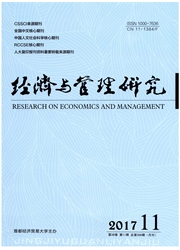

 中文摘要:
中文摘要:
随着电力改革不断推进,完善市场交易机制、化解过剩产能、提高能源使用效率成为电力供给侧改革的目标。与输配电环节相比,电力生产环节已形成多种所有制类型企业竞争的格局,而环境政策的实施进一步淘汰落后产能,优化电源结构。为考察环境政策实施背景下竞争性改革对异质性发电企业效率的影响,本文在对微观发电企业全要素生产率(TFP)进行计算的基础上,将企业按所有制及电源类型区分并进行实证检验。结果表明市场竞争、有效规制与环境政策提升了电力生产企业的生产效率,而产权改革的效果并不明显。分样本测算结果显示竞争政策提高了国有企业的全要素生产率,对私有企业影响甚微;环境规制不但提高了火电企业的生产效率,也促进了清洁能源发电企业效率的提升。
 英文摘要:
英文摘要:
Along with the power reform, developing the market mechanism, resolving excess capacity and improving energy efficiency become the goal of the power supply side reform. Compared with the transmission and distribution Sectors, the power production industry forms the competition pattern with various types of ownership enterprises, while the implementation of environmental policies eliminates backward production capacity and optimizes the power supply structure. In order to investigate the impact of competition reform on the production efficiency of heterogeneous power plants in the context of environmental policy implementation, this paper calculates the total factor productivity of power generation enterprises and then makes empirical analysis of the power generation enterprises according to ownership and the type of power supply. The results show that market competition, regulation and environmental policy promote the production efficiency of enterprises, while the effect of property rights reform is not significant. The sub sample analysis shows that the competition policy promotes the total factor productivity of the state-owned enterprises but has little effect on the private enterprises; environmental regulation improves the production efficiency of thermal power plants, as well as the clean energy power generation enterprises.
 同期刊论文项目
同期刊论文项目
 同项目期刊论文
同项目期刊论文
 期刊信息
期刊信息
